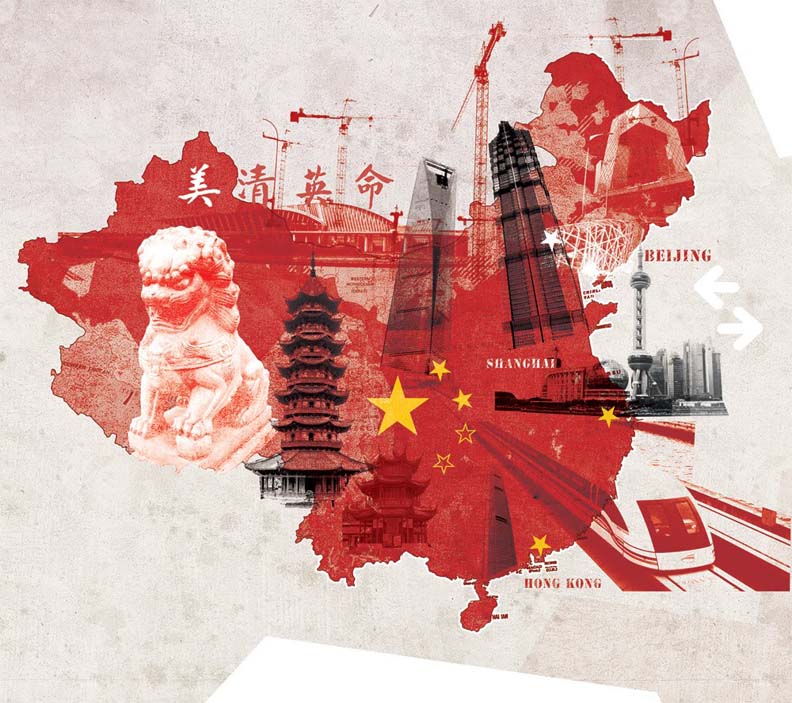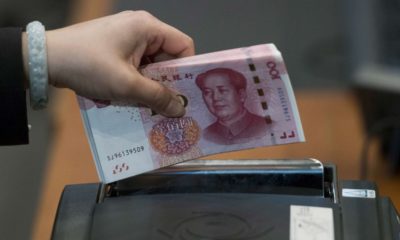- China Says World Trade System Not Perfect, Needs Reform
The current world trade system is not perfect and China supports reforms to it, including to the World Trade Organization, to make it fairer and more effective, Beijing’s top diplomat said.
China is locked in a bitter trade war with the United States and has vowed repeatedly to uphold the multilateral trading system and free trade, with the WTO at its center.
But speaking late on Thursday to reporters after meeting French Foreign Minister Jean-Yves Le Drian, Chinese State Councillor Wang Yi said some reforms could be good.
While certain doubts have been raised about the current international trading system, China has always supported the protection of free trade and believes that multilateralism with the WTO at its core should be strengthened, Wang added.
“At the same time, we do not believe that the current system is perfect and without flaws,” he said.
“China supports necessary reforms and perfection of the current system, including to the WTO, to make it fairer, more effective and more rational,” Wang added.
The basic tenets of the WTO, in opposing protectionism and supporting free trade should not change, but the rights of developing nations should also not be overlooked, he said.
“The aim of reform should be to allow countries to enjoy the development fruits of globalization more fairly, not to further widen the differences between south and north,” Wang said.
WTO reforms need to include listening to voices from all parties and broad consultation, and should especially listen to a respect the opinions of developing countries, rather than just allowing “one person to have a say”, he added.
“The issue of WTO reform is extremely complex, and involves many areas. (China) hopes all parties remain patient, and advance step by step.”
His remarks come as China and the United States may return to the negotiating table with the threat of new U.S. tariffs looming. Treasury Secretary Steven Mnuchin has extended an invitation to talks to his counterparts in Beijing.
“TRUMP ADMINISTRATION SHOULD NOT BE MISTAKEN”
But China will not buckle to U.S. demands in any trade negotiations, the major state-run China Daily newspaper said in an editorial on Friday, after Chinese officials welcomed an invitation from Washington for a new round of talks.
The official China Daily said that while China was “serious” about resolving the stand-off through talks, it would not be rolled over, despite concerns over a slowing economy and a falling stock market at home.
“The Trump administration should not be mistaken that China will surrender to the U.S. demands. It has enough fuel to drive its economy even if a trade war is prolonged,” the newspaper said in an editorial.
If the United States imposed new levies on Chinese imports then Beijing “will not hesitate to take countermeasures against U.S. tariffs to safeguard China’s interests,” it added.
President Donald Trump said on Twitter on Thursday that the United States holds the upper hand in talks.
“We are under no pressure to make a deal with China, they are under pressure to make a deal with us,” Trump tweeted. “Our markets are surging, theirs are collapsing.”
The U.S. administration is readying a final list of $200 billion in Chinese imports on which it plans to levy tariffs of 10-25 percent in coming days, which would ramp up the trade war between the world’s two largest economies.
Trump said last week that he also had tariffs on an additional $267 billion worth of goods ready “on short notice if I want.”
A meeting among Cabinet-level officials could ease market worries over the escalating tariff war that threatens to engulf all trade between the world’s two largest economies and raise costs for companies and consumers.
However, the last round of talks, between mid-level U.S. and Chinese officials in August, failed to reach any agreement.

 Education4 weeks ago
Education4 weeks ago
 News3 weeks ago
News3 weeks ago
 Business3 weeks ago
Business3 weeks ago
 Technology3 weeks ago
Technology3 weeks ago
 Investment4 weeks ago
Investment4 weeks ago
 Investment3 weeks ago
Investment3 weeks ago
 Telecommunications4 weeks ago
Telecommunications4 weeks ago
 Banking Sector3 weeks ago
Banking Sector3 weeks ago



























